Complex systems, nonlinear data analysis (recurrence plots, complex networks, 3D image analysis), time series analysis of irregularly sampled time series, interdisciplinary applications with focus on Earth science, paleoclimatology, speleology.
Group leader of working group Development of advanced time series analysis techniques.
PIK-wide seminar series
Paleoclimate and Long-term Climate Evolution Seminar – A cross-departmental quasi-monthly meeting to bring together early career and senior scientists that work on extremes research at PIK.
Climate and Weather Extremes Seminar – A cross-departmental quasi-monthly meeting to bring together early career and senior scientists working on paleoclimate and long-term climate evolution at PIK.
Requirements for guests working in my group
To ensure a productive and efficient collaboration during your time with our group, we kindly ask all guest scientists to arrive well-prepared. The following requirements and expectations will help you integrate seamlessly into our workflows:
- Technical Skills:
- Proficiency in using Unix-based systems (e.g., Linux, macOS) is essential.
- If you use MS Windows, you should be familiar with SSH and SCP (e.g., via PuTTY). Please note that we cannot provide assistance in setting up or configuring these systems.
- Basic proficiency with commandline filesystem commands and data transfer between different filesystems is required (using SSH connections).
- Programming and Tools:
- Familiarity with at least one of the following programming environments: MATLAB, Python, or Julia.
- Experience with Git for version control is highly desirable.
- Data Preparation:
- All data necessary for your planned analyses must be fully downloaded, organized, and preprocessed prior to your arrival.
- Data should be prepared in such a way that analysis can begin immediately upon starting work with us. Unfortunately, we cannot provide support for data acquisition or preparation.
- Writing:
- All paper writing within the group is done using LaTeX. Familiarity with LaTeX and its workflows is therefore required.
- General Technical Advice:
- Ensure that all your technical equipment (e.g., laptops, adapters, and cables) is in good working order before arriving.
- Make sure your software environment, including all necessary tools and libraries, is installed and functioning correctly.
- Having backup solutions, such as spare cables or adapters, is advisable to avoid disruptions.
By meeting these requirements, you will be well-equipped to make the most of your time with our group.
Contact
14412 Potsdam
ORCID
Additional affiliation
Institute of Geosciences
University of Potsdam
Institute of Physics and Astronomy
University of Potsdam
PGP Key
For contacting me by email, please encrypt your messages using my » public pgp key.
Visiting address
Telegraphenberg Einstein Campus
building A56, office 3.52
- 1999 Physics: Univ of Technology Dresden
- 2003 PhD Physics: Univ of Potsdam
- 2019 Habil Geoscience: Univ of Potsdam
Research highlights
- Development of the new time series analysis framework of recurrence networks, their use for detection of regime transitions and applications in physiology and climate.
- Development of recurrence based coupling analysis, significance assessment of recurrence based data analysis, and recurrence analysis for high-dimensional systems with applications in cardio-respiratory systems, global warming, and monsoon systems.
- Complex network analysis of climate data, in particular of extreme states. Identification of characteristic spatio-temporal patterns and teleconnections in monsoon systems as well as development of a prediction scheme for extreme rainfall using the network approach.
- Multiscale approach for complex network analysis.
- Theoretical justification of complex networks as representatives of atmospheric and ocean circulation. Boundary corrections for spatially embedded networks.
- Framework for age-depth modelling of palaeoclimate proxy records and introduction of an “absolute time scale” by transferring dating uncertainties into the proxy domain.
- Introduction of the "Transfer cost time series" (TACTS) approach for analysing time series with irregular sampling.
- Development of the concept of basin stability for complex networks and application in power grid stability.
Selected publications
(full list: https://www.pik-potsdam.de/~marwan/publications.php)
- N. Marwan, M. C. Romano, M. Thiel, J. Kurths: Recurrence Plots for the Analysis of Complex Systems, Physics Reports, 438(5–6), 237–329 (2007).
- N. Marwan, J. F. Donges, Y. Zou, R. V. Donner, J. Kurths: Complex network approach for recurrence analysis of time series, Physics Letters A, 373(46), 4246–4254 (2009).
- J. F. Donges, R. V. Donner, M. H. Trauth, N. Marwan, H. J. Schellnhuber, J. Kurths: Nonlinear detection of paleoclimate-variability transitions possibly related to human evolution, Proceedings of the National Academy of Sciences, 108(51), 20422–20427 (2011).
- D. J. Kennett, S. F. M. Breitenbach, V. V. Aquino, Y. Asmerom, J. Awe, J. U. L. Baldini, P. Bartlein, B. J. Culleton, C. Ebert, C. Jazwa, M. J. Macri, N. Marwan, V. Polyak, K. M. Prufer, H. E. Ridley, H. Sodemann, B. Winterhalder, G. H. Haug: Development and Disintegration of Maya Political Systems in Response to Climate Change, Science, 338(6108), 788–791 (2012).
- N. Boers, B. Bookhagen, H. M. J. Barbosa, N. Marwan, J. Kurths, J. A. Marengo: Prediction of extreme floods in the eastern Central Andes based on a complex networks approach, Nature Communications, 5, 5199 (2014).
- N. Molkenthin, K. Rehfeld, N. Marwan, J. Kurths: Networks from Flows – From Dynamics to Topology, Scientific Reports, 4(4119), 1–5 (2014).
- H. E. Ridley, Y. Asmerom, J. U. L. Baldini, S. F. M. Breitenbach, V. V. Aquino, K. M. Prufer, B. J. Culleton, V. Polyak, F. A. Lechleitner, D. J. Kennett, M. Zhang, N. Marwan, C. G. Macpherson, L. M. Baldini, T. Xiao, J. L. Peterkin, J. Awe, G. H. Haug: Aerosol forcing of the position of the intertropical convergence zone since ad 1550, Nature Geoscience, 8, 195–200 (2015).
- J. Runge, V. Petoukhov, J. F. Donges, J. Hlinka, N. Jajcay, M. Vejmelka, D. Hartman, N. Marwan, M. Paluš, J. Kurths: Identifying causal gateways and mediators in complex spatio-temporal systems, Nature Communications, 6, 8502 (2015)
- D. Eroglu, F. H. McRobie, I. Ozken, T. Stemler, K.-H. Wyrwoll, S. F. M. Breitenbach, N. Marwan, J. Kurths: See-saw relationship of the Holocene East Asian-Australian summer monsoon, Nature Communications, 7, 12929 (2016).
- B. Goswami, N. Boers, A. Rheinwalt, N. Marwan, J. Heitzig, S. F. M. Breitenbach, J. Kurths: Abrupt transitions in time series with uncertainties, Nature Communications, 9, 48 (2018).
- Y. Zou, R. V. Donner, N. Marwan, J. F. Donges, J. Kurths: Complex network approaches to nonlinear time series analysis, Physics Reports, 787, 1–97 (2019).
- T. Westerhold, N. Marwan, A. J. Drury, D. Liebrand, C. Agnini, E. Anagnostou, J. S. K. Barnet, S. M. Bohaty, D. De Vleeschouwer, F. Florindo, T. Frederichs, D. A. Hodell, A. E. Holbourn, D. Kroon, V. Lauretano, K. Littler, L. J. Lourens, M. Lyle, H. Pälike, U. Röhl, J. Tian, R. H. Wilkens, P. A. Wilson, J. C. Zachos: An astronomically dated record of Earth's climate and its predictability over the last 66 million years, Science, 369(6509), 1383–1387 (2020).
- M. Singh, R. Krishnan, B. Goswami, A. D. Choudhury, P. Swapna, R. Vellore, A. G. Prajeesh, N. Sandeep, C. Venkataraman, R. V. Donner, N. Marwan, J. Kurths: Fingerprint of volcanic forcing on the ENSO–Indian monsoon coupling, Science Advances, 6, eaba8164 (2020).
- DFG: Impacts of uncertainties in climate data analyses (IUCliD): Approaches to working with measurements as a series of probability distributions
- DFG: Natural Hazards and Risks in a Changing World
- DFG: Recurrence plot analysis of regime changes in dynamical Systems
- DFG: Nonlinear Empirical Mode Analysis of Complex Systems: Development of General Approach and Applications in Climate
- DFG: Trends, rhythms and events in East African climate: statistical analysis of the paleoclimare records of the long sediment cores of the Chew Bahir basin
- BMBF: Klimawandel und Extremereignisse (climXtreme)
- EU: Tipping points in the Earth system – Towards sharper estimates of critical forcing levels (TiPES)
- EU: QUantitative paleoEnvironments from SpeleoThems (QUEST)
University of Potsdam, Institute of Geoscience
- GEW-DAP02 Nonlinear Data Analysis Concepts
- Data Management in the Geosciences
- Caves as scientific archives
Past and current
International Journal of Bifurcation and Chaos, Nonlinear Processes in Geophysics, Frontiers in Physics (Interdisciplinary Physics), Frontiers in Applied Mathematics and Statistics (Dynamical Systems), Journal of Chaos, Entropy, The European Physical Journal ST
Guest editor
Chaos, Springer Series in Complexity, Springer Proceedings in Mathematics and Statistics, Quaternary Science Reviews
Cave research
Regular cave research camps in the Sägistal in the Swiss Alps (International Research Group Alpine Karst – ISAAK).
Research activities around the world.
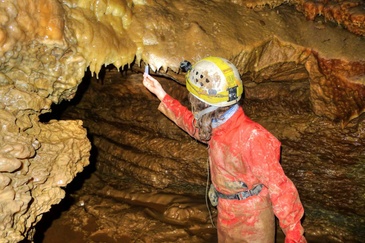
(Photo: N. Marwan)
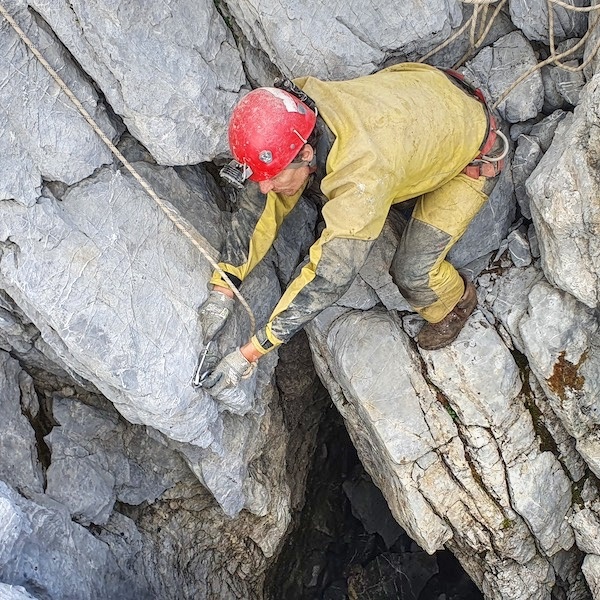
Alps (Photo: Christian Luethi)
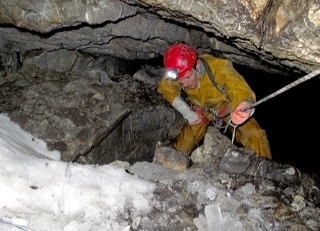
(Photo: Sebastian Breitenbach)
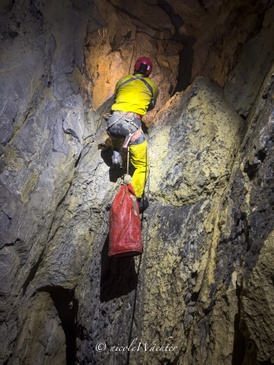
Alps (Photo: Nicole Wächter)
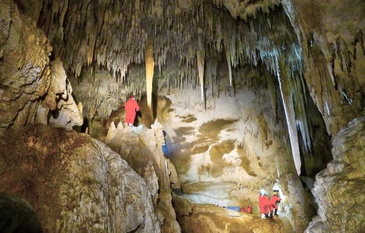
(Photo: N. Marwan)
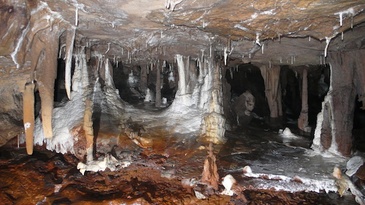
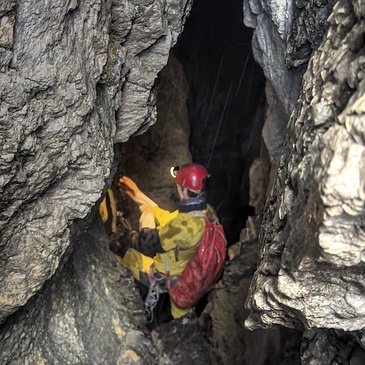
(Photo: Nicole Wächter)






